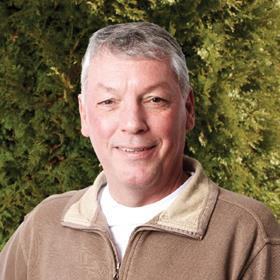
In October, The Greenery's Bert Wilschut, topfruit manager at the group, will speak at the Eurofruit Congress Southern Hemisphere in Cape Town about how fresh produce companies can expand their production and enter new markets.
You are now in charge of topfruit at The Greenery, but how long have you been working in the fresh produce industry?
BW: I have been in the industry since 1982. I began my career at Bakker Barendrecht, which is known as the service provider for Albert Heijn supermarkets. I was responsible for export activities at Bakker and later I became account manager for Makro Netherlands.
What would you say is the most important thing you have learnt about the industry in that time?
BW: Bakker/Albert Heijn were one of the first who started the chain from producer to consumer. At that time most of the products were bought at auctions, but Bakker/Albert Heijn wanted to directly source from the suppliers.
Albert Heijn were also the first who appointed an exclusive service provider, which meant that it was more or less onlyBakker Barendrechtwho supplied to them. This allowed the company to focus on sales and marketing more strongly and until now has given Albert Heijn the highest percentage in fair share, which is the market position a retailer has against what he sells.
What do you enjoy most about your current position?
BW: To roll out a completely new concept, as we have recently with pear variety Sweet Sensation, together with a co-operative, is very energising and can offer a lot of possibilities. In the case of Sweet Sensation, the prospect of a year-round product for our customers is exciting. Not only this, but it is interesting to work in an organisation that works with all major players in the fresh produce industry from around the world, including AG Thames, Capespan, Edeka and Tesco to name a few.
What are the greatest challenges?
BW: The development of ‘local for local’ is a great challenge. Together with our producers, we need to look for production in other countries to be able to supply our customers with locally produced products. If you can develop production on a local market with a product of which you are the variety owner, it makes the challenge even greater.
In another life, what career do you think you would have chosen?
BW: Believe it or not, a psychologist. My oldest son is a neuropsychologist for children and my daughter is an orthopaedic doctor. As a result, I’ve become more and more interested in the complexity of people and how to help them.
Who do you admire in this industry?
BW: I particularly admire the topfruit industry. It is unbelievable how the growers act after their orchards are destroyed by adverse weather conditions.They can deal withhuge losses and start all over again as if nothing has happened.
Where do you see the fresh produce industry moving in the future?
BW: The producers are very fragmented, because production concentrated on auctions in the past. What you see now is that producers are constantly switching to other sales companies. This means you get more suppliers of thesame products, with more companies offering that product to the same retailers.As we have more production than demand for many products, we see pressure on the price, which results in an unfavourable result at the end for the producers. This has to change.
There is a growing interest in local-for-local business. The natural choice will always become more important. Countries such as China and India are going to need a lot of produce in the coming years, giving a lot of new opportunities. Growing food nearer to where people are, on a global scale, will bring more balance in terms of production and demand. Reductions in the use of energy and chemicals are essential for a planet which has to feed more and more people.



